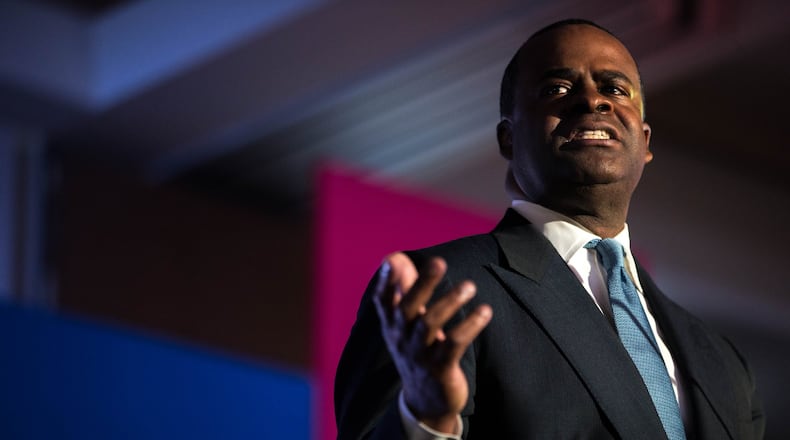A proposed ordinance that seems to triple the annual liquor license fees in Atlanta drew dozens of angry hospitality industry representatives to City Hall on Tuesday.
They said the legislation would kill their businesses, force them to lay off employees, or prevent them from providing benefits.
The ordinance, which is not entirely clear, appears to raise the annual liquor license fee from $5,000 to $15,000 for an establishment selling wine, beer and distilled spirits.
In an hour-long city council committee meeting, high ranking city officials in Mayor Kasim Reed’s administration first disputed that the fees would triple, then admitted some figures were errors and finally said the mayor’s office never intended for it to pass out of the committee on Tuesday.
“Our intent was to hear from you,” said Atlanta Chief Financial Officer Jim Beard. “Clearly this legislation needs some work … I’m not sure how we got here.”
Karen Bremer, CEO of the Georgia Restaurant Association, said she was particularly miffed that the mayor’s office did not consult with business owners before introducing the legislation about its potential impact.
“Nobody reached out to anybody in our industry,” Bremer said. “Our industry employs more than 100,000 people here in the City of Atlanta … I was mortified that I heard about this from my car wash attendant. That’s inexcusable.”
The ordinance came up for consideration in the city council’s Public Safety and Legal Administration Committee, which voted to effectively kill the bill in its current form, after hearing from several of the roughly 100 restaurateurs in attendance. Committee members also said they had seen no information from the administration justifying the fee increases.
The full council still has final say and could take up the matter at its Nov. 6 meeting
The ordinance notes that liquor license fees in Atlanta haven’t increased since 2010 and that current fees don’t cover the cost of enforcement.
Katrina Parks Taylor, Reed’s deputy chief of staff, had heated exchanges with members of the audience who heckled her while she tried to explain the administration’s position.
“I want to apologize for my aggression,” she said. “It’s slightly frustrating because this is not the first time [the ordinance] has been heard. And there are some missing pieces … We are not trying to ram this down anyone’s throat.”
She then said the bill contained errors.
“There are human beings that work in the building, and it’s possible that someone made a mistake,” she said.
The legislation contained no fiscal note describing the amount of money it would generate. Parks Taylor said the committee would have a report about the financial impact on Monday.
Mark Williams, general manager of the Georgian Terrace Hotel, said the proposal would raise liquor license fees at his hotel’s three venues from $15,000 to $45,000 a year. “That’s somebody’s job,” he said.
A document describing the history of the proposal shows it left the city’s finance department on Aug 24. That same day, Beard and the Office of Research and Policy Analysis signed off on it.
The ordinance went to two separate committees. At no point, did the numbers change, according to a city document summarizing the ordinances’ history.
City Councilman Kwanza Hall is not on the committee that discussed the issue Tuesday, but he did offer his thoughts from his spot on the dais.
“When I heard about this, I was like: ‘This can’t be right,” said Hall, who is running for mayor. Hall also said the ordinance should not have been “done in the dark.”
In a statement, Reed said: “I understand the public’s concern about increased fees for liquor licenses, but we need to set the record straight. The draft bill needs work and is not in final form. It was never going to move forward for a vote today.”
A spokesperson for Reed’s office declined to answer a question about how erroneous numbers remained for two months in legislation that was reviewed by multiple people at City Hall.
“Your questions don’t make sense to me,” said Reed’s press secretary Jenna Garland. “The draft bill was included in today’s [public agenda] as a public hearing.”
“We’re two weeks out from an election, and that means candidates will grandstand,” Reed said in a statement.
But Bremer didn’t buy statements about mistaken the figures in the legislation. As she left the meeting she said:
“I believe the executive branch of the administration knew exactly what they were doing.”
About the Author
Keep Reading
The Latest
Featured



